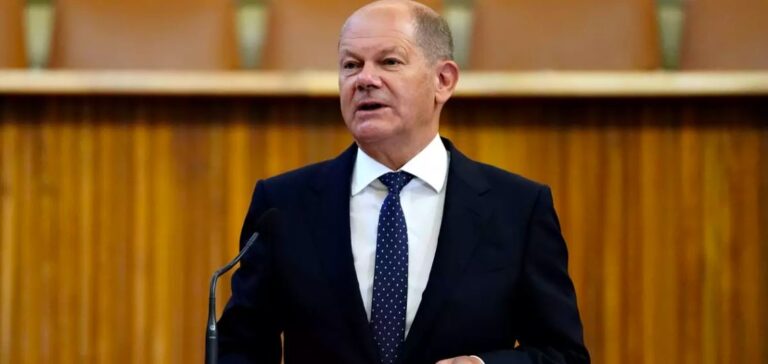The 200 billion euro support plan released by Germany to protect its economy from the energy crisis, criticized by several European countries, is “justified”, said Chancellor Olaf Scholz Tuesday.
“The measures we are taking are (…) justified,” said the head of the German government at a press conference with his Dutch counterpart, Mark Rutte.
While some EU officials criticize it for going it alone, Berlin argues that these measures “are not isolated, and have been taken elsewhere,” Scholz said.
France and Spain have put in place measures to limit the impact of soaring energy costs on consumers, as Germany is about to do with an upcoming price cap.
The announcement last week of this new aid, valued at 200 billion euros, irritated its European partners.
Germany is being accused of double standards: pleading for austerity in Brussels while spending lavishly itself.
The amount and the uncoordinated nature of the initiative make some countries fear distortions of competition, because not all European states can release such a sum.
In addition to similar measures in other European countries, Berlin emphasizes that its plan will be spread over several years, which will prevent too many distortions.
“These measures will be intended to finance support measures in 2023 and 2024″, thus defended Tuesday Olaf Scholz.
The Chancellor also rejected the establishment of new common borrowing instruments at the European level to respond to the crisis, such as the post-Covid recovery plan of 2020.
This is what was suggested in an opinion piece on Monday by the European Commissioners for the Economy and the Internal Market, Paolo Gentiloni and Thierry Breton.
Mr. Scholz calls for the use of the money released in 2020, a large part of which has not yet been spent by the European states.
“We have a huge envelope of 750 billion euros, the vast majority of which has not yet been used, and which can be particularly effective at this time,” he said.
This European recovery plan, intended for “investments in the future”, was released thanks to the agreement of Germany, at the time governed by the conservative Angela Merkel, who finally rallied to the initiative.





















